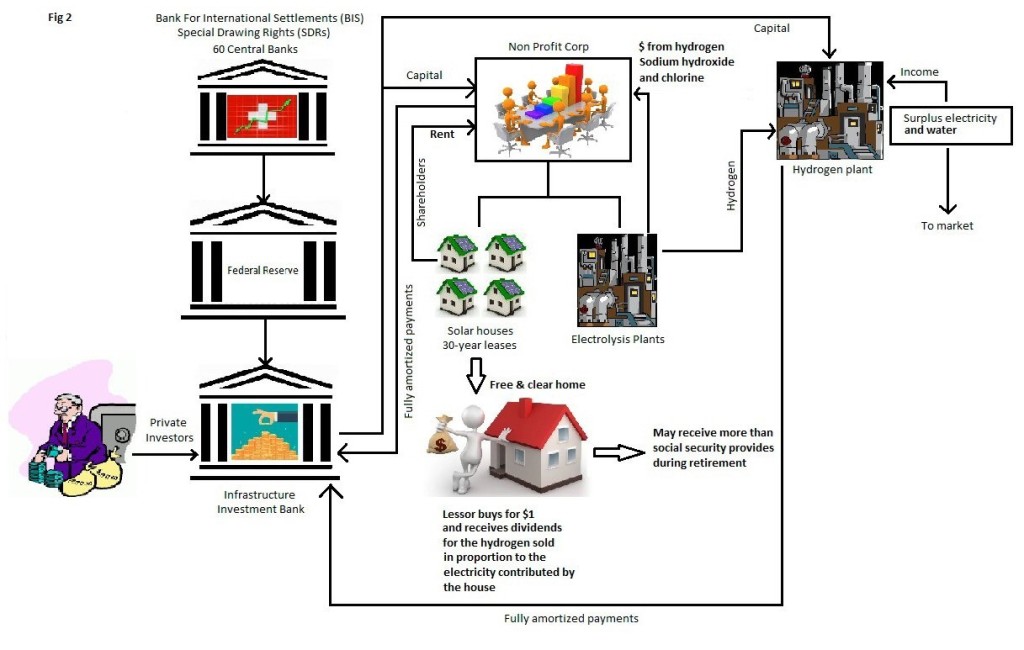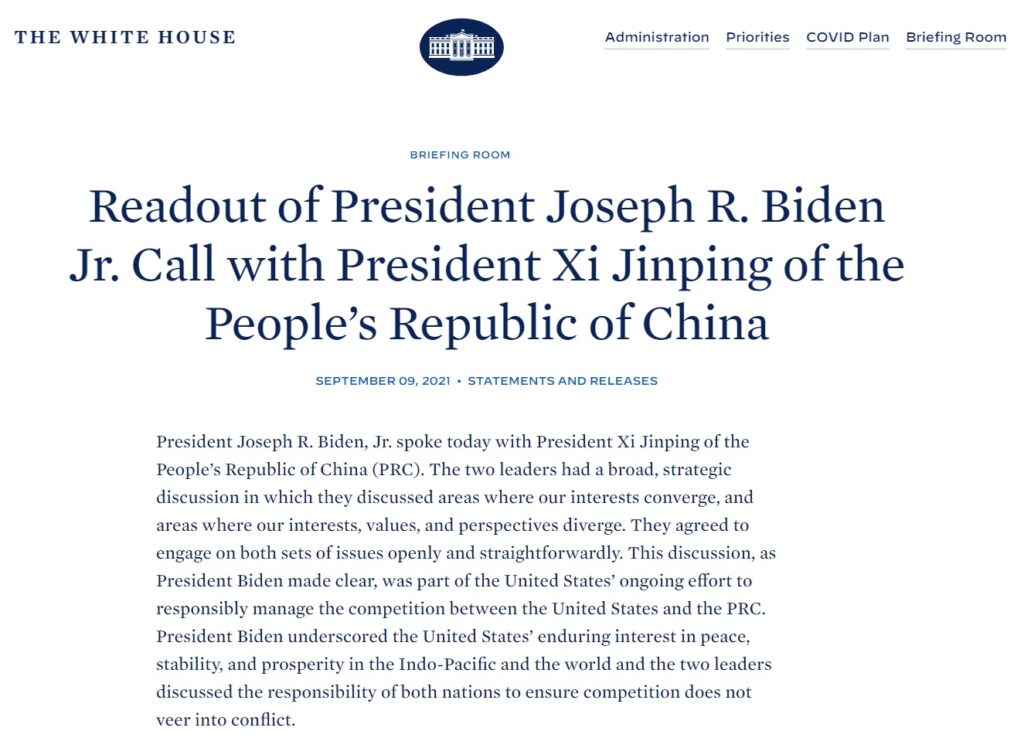October 9, 2021
A month ago Presidents Biden and Xi had a crucial telephone conversation that according to the White House, covered a number of unspecified issues. Then, almost a month later, President Biden acknowledged that Taiwan was one of them and that the two had agreed to abide by the “Taiwan agreement.” Since he did not elaborate, for purposes of this simple synopsis we’ll make the extraordinary assumption that he was referring to the Shanghai Communique of 1972. Almost simultaneously, speaking at a gathering marking the 110th anniversary of the Chinese Revolution of 1911 that ended 2,000 years of imperial rule, President Xi said that Taiwan independence secessionism is the biggest obstacle for the national reunification, a serious threat to national rejuvenation, and that anyone who intends to betray and separate the country will be distained by the people and judged by history.
Several possibilities might be inferred from these events. Firstly, the two leaders appear to have agreed to what amounts to an uneasy truce about the future of Taiwan. If so, in the near term, that should be cause for a collective sigh of relief. However the Communique only declares that “there is only one China and that Taiwan is part of China.” It is silent as to whether or when Beijing will get to rule over the island as any other Chinese province. For all intents and purposes this glaring omission permanently prevents Beijing from ingesting the island. Secondly, and this is highly unlikely, the two Presidents may have secretly agreed on a timeframe and protocol to allow China to take over Taiwan; and thirdly, most likely, both are playing for time to allow their respective militaries to build up… to win a real war. Ominously, this scenario is supported by empirical evidence such as President Xi’s speeches on the matter and the results of recent American wargames over Taiwan.
As it stands, at least as far as President Biden is concerned, there’s an agreement to not change the status quo. On the other hand, President Xi views the issue of Taiwan strictly as a Chinese internal matter and, as such, beyond the right of any other nation, especially the United States, to have a say in it. Obviously these viewpoints are fundamentally irreconcilable.
There are three crucial issues that ought to be considered. Firstly, the length of the truce; this will no doubt be influenced, but not necessarily determined by, the ongoing arms race between China the U.S. and its Indo-Pacific allies, particularly Japan, which is also rearming. Secondly, it is possible that a war between China and the U.S. would eventually engulf Russia, NATO, Iran and Israel. This would be the end of the line for the human race, and it would occur very quickly. Thirdly, unless and until the Taiwan issue is peacefully resolved, it is highly unlikely that there will be any meaningful and effective cooperation between the U.S. and China, the world’s largest polluters, on climate change.
We’ve previously dwelled on the strategic importance of Taiwan; in addition, others have persuasively opined that the U.S. should avoid war with China over Taiwan at all costs. All well and good, but the fact remains that the underlying dynamic propelling the South China Sea in general, and Taiwan in particular, to prominence is the struggle for global dominance between the world’s two largest economies. Their elites should lift their gaze beyond the few inches that this transitory crisis represents on our species’ timescale to what the rest of this century may well look like, if we make it that far. For example, by the end of this century, will the U.S. dollar still be the reserve currency of the world? If not, how will the U.S. have weathered the painful transition away from having the privilege to print money at will without triggering runaway domestic inflation? How will that have affected the stock market, retirement funds, annuities, life insurance policies, derivatives, bonds, real estate, and the banking industry? And, absent any coordinated cooperation with China, how will that transition affect everyone else?
We believe that the only way to forestall both a terminal war and/or a financial catastrophe is to disperse future wealth peacefully and imperceptibly, without confiscations or onerous taxation. That would introduce a structural pathway to render nuclear weapons obsolete and prevent a small minority from ever again threatening the planet with extinction. And the first step to do so is to make per capita production and consumption of green hydrogen the basis for a new universal currency.

